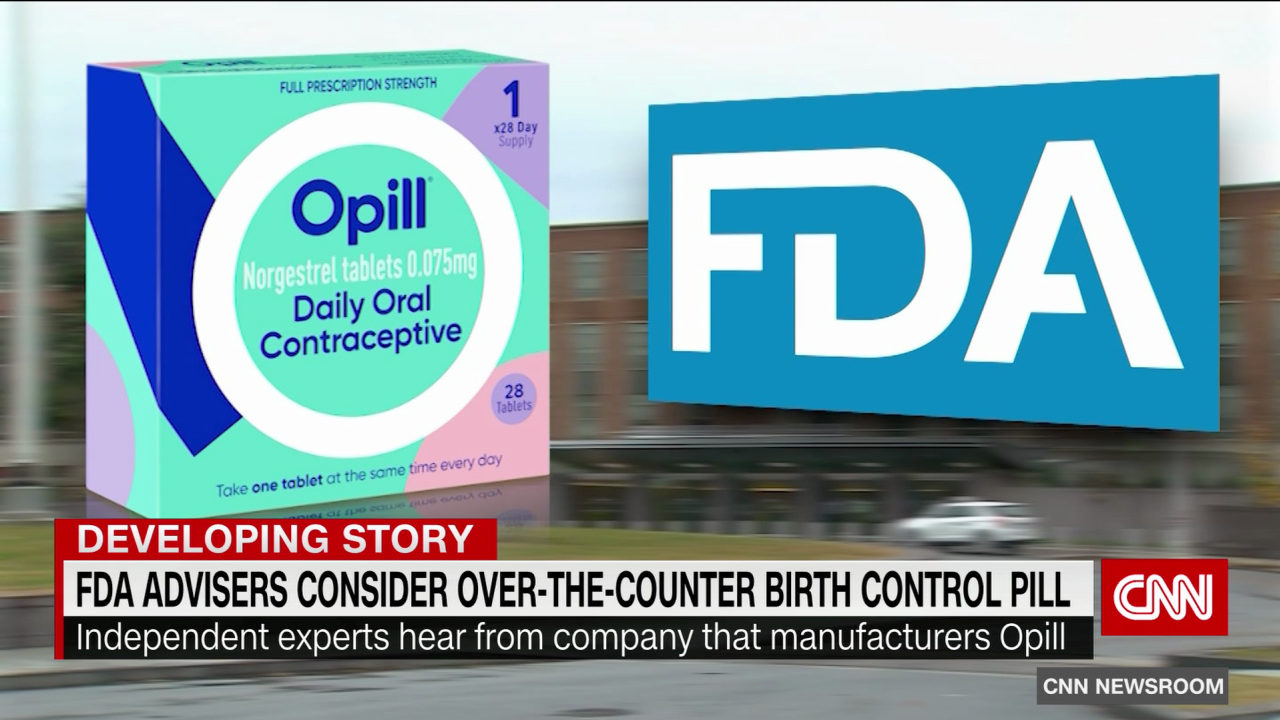The Post-Roe Landscape: Analyzing The Significance Of OTC Birth Control

Table of Contents
Increased Access and Convenience with OTC Birth Control
Breaking Down Barriers to Access
Geographical limitations, financial constraints, and lack of insurance coverage significantly hinder access to birth control for many Americans. These barriers disproportionately affect marginalized communities.
- Limited Healthcare Access: Rural areas and underserved communities often lack sufficient clinics and healthcare providers offering reproductive services, creating significant obstacles to obtaining prescription birth control.
- Cost Comparison: Prescription birth control can be expensive, even with insurance. The cost of doctor visits, prescriptions, and ongoing refills places a considerable financial burden on many individuals and families. OTC options offer a potentially more affordable alternative.
- Uninsured Individuals: Millions of Americans lack health insurance, leaving them with limited or no access to affordable contraception. OTC birth control could provide a crucial lifeline for this vulnerable population.
OTC availability directly addresses these barriers by eliminating the need for doctor's visits and prescriptions, significantly reducing both financial and logistical hurdles. This ease of access makes birth control more attainable for a broader range of individuals.
The Empowerment of Self-Care
Easy access to OTC birth control empowers individuals to take control of their reproductive health.
- Discreet Purchase: The ability to purchase birth control discreetly and independently, without needing a doctor's appointment, offers a crucial level of privacy and autonomy.
- Independent Decision-Making: OTC birth control allows individuals to manage their reproductive health without navigating potential stigma or judgment associated with seeking healthcare services.
The psychological impact of this control is significant. Empowering individuals to manage their reproductive health directly contributes to their overall well-being and reduces anxieties associated with unintended pregnancies.
The Potential Impact of OTC Birth Control on Unintended Pregnancies
Reducing Rates of Unintended Pregnancy
Increased access to OTC birth control holds the potential to significantly reduce unintended pregnancy rates across the United States, particularly among underserved communities.
- Correlation between Access and Pregnancy Rates: Studies consistently show a strong correlation between access to contraception and lower rates of unintended pregnancies.
- Statistical Data: Data from organizations like the Guttmacher Institute reveal a significant rise in unintended pregnancies in states with restrictive abortion laws. Wider access to OTC birth control could mitigate this trend.
By making contraception more readily available and affordable, OTC birth control could lead to a substantial decrease in unintended pregnancies, consequently reducing the need for abortion services and improving overall reproductive health outcomes.
Addressing Health Disparities
OTC birth control could be a powerful tool in addressing existing health disparities in access to reproductive healthcare.
- Disparities Based on Race, Ethnicity, and Socioeconomic Status: Marginalized communities often face significant barriers to accessing healthcare, leading to higher rates of unintended pregnancies and poorer reproductive health outcomes.
- Geographic Location: Access to reproductive healthcare varies widely based on geographic location, with rural and underserved areas consistently lagging behind.
Broader access to OTC birth control has the potential to mitigate these disparities by ensuring that individuals from all backgrounds have equal opportunities to prevent unintended pregnancies and manage their reproductive health.
Concerns and Considerations Regarding OTC Birth Control
Potential for Misinformation and Misuse
The increased availability of OTC birth control raises concerns about the potential for misinformation and misuse.
- Clear Labeling and Accurate Information: Clear, concise, and accurate labeling is crucial to ensure safe and effective use. Public health campaigns providing reliable information about various birth control options are essential.
- Self-Diagnosis and Incorrect Usage: Individuals may incorrectly self-diagnose or use OTC birth control improperly, potentially leading to adverse health consequences.
Addressing these concerns requires robust educational initiatives and responsible regulation to ensure consumers understand how to use these methods safely and effectively.
The Role of Healthcare Professionals
Despite increased OTC availability, healthcare providers continue to play a vital role in ensuring safe and effective use of birth control.
- Choosing the Right Method: Healthcare providers can guide individuals in choosing the most appropriate birth control method based on their individual needs and health history.
- Managing Side Effects: Professionals can address any side effects or concerns that may arise from using OTC birth control.
Even with greater OTC availability, access to comprehensive reproductive healthcare services, including consultations with healthcare providers, remains crucial for ensuring individual well-being.
Conclusion
The increased availability of OTC birth control presents a complex but potentially crucial step in the post-Roe landscape. While concerns regarding misuse and misinformation need to be addressed proactively through education and responsible regulation, the potential benefits of enhanced access – including reduced unintended pregnancies and improved reproductive autonomy – are significant. Expanding access to OTC birth control offers a vital pathway towards ensuring reproductive health equity and empowering individuals to make informed choices regarding their bodies and futures. Let's advocate for policies that support wider availability of safe and effective OTC birth control methods to bolster reproductive healthcare in the United States. Access to affordable and convenient OTC birth control is a critical component of comprehensive reproductive healthcare.

Featured Posts
-
 Kawasaki Ninja 500 Biaya Modifikasi Dan Harga Jual Di Atas Rp 100 Juta
May 30, 2025
Kawasaki Ninja 500 Biaya Modifikasi Dan Harga Jual Di Atas Rp 100 Juta
May 30, 2025 -
 Hugh Jackman And Deborra Lee Furness Understanding Their Separation And Furnesss Perspective
May 30, 2025
Hugh Jackman And Deborra Lee Furness Understanding Their Separation And Furnesss Perspective
May 30, 2025 -
 Gorillaz London Concerts A Guide To Securing Tickets For Full Album Performances
May 30, 2025
Gorillaz London Concerts A Guide To Securing Tickets For Full Album Performances
May 30, 2025 -
 Mada Preduprezhdaet Ekstremalnye Pogodnye Yavleniya V Izraile Trebuyut Ostorozhnosti
May 30, 2025
Mada Preduprezhdaet Ekstremalnye Pogodnye Yavleniya V Izraile Trebuyut Ostorozhnosti
May 30, 2025 -
 Solicitar Reembolso Boletos Festival Axe Ceremonia 2025 Cancelado En Ticketmaster
May 30, 2025
Solicitar Reembolso Boletos Festival Axe Ceremonia 2025 Cancelado En Ticketmaster
May 30, 2025
Latest Posts
-
 Twins Guardians Baseball Game April 29th Rain Delay And Start Time
May 31, 2025
Twins Guardians Baseball Game April 29th Rain Delay And Start Time
May 31, 2025 -
 Cleveland Guardians Vs Minnesota Twins April 29th Game Time And Weather
May 31, 2025
Cleveland Guardians Vs Minnesota Twins April 29th Game Time And Weather
May 31, 2025 -
 Enroll Now Meteorologist Tom Atkins Bi Annual Skywarn Class
May 31, 2025
Enroll Now Meteorologist Tom Atkins Bi Annual Skywarn Class
May 31, 2025 -
 Twins Guardians Game Rain Delay Updates And Start Time For April 29th
May 31, 2025
Twins Guardians Game Rain Delay Updates And Start Time For April 29th
May 31, 2025 -
 Become A Skywarn Storm Spotter Spring Training With Tom Atkins
May 31, 2025
Become A Skywarn Storm Spotter Spring Training With Tom Atkins
May 31, 2025
